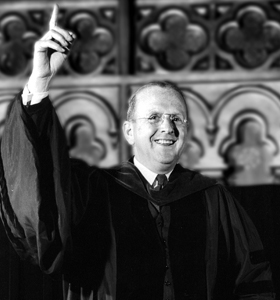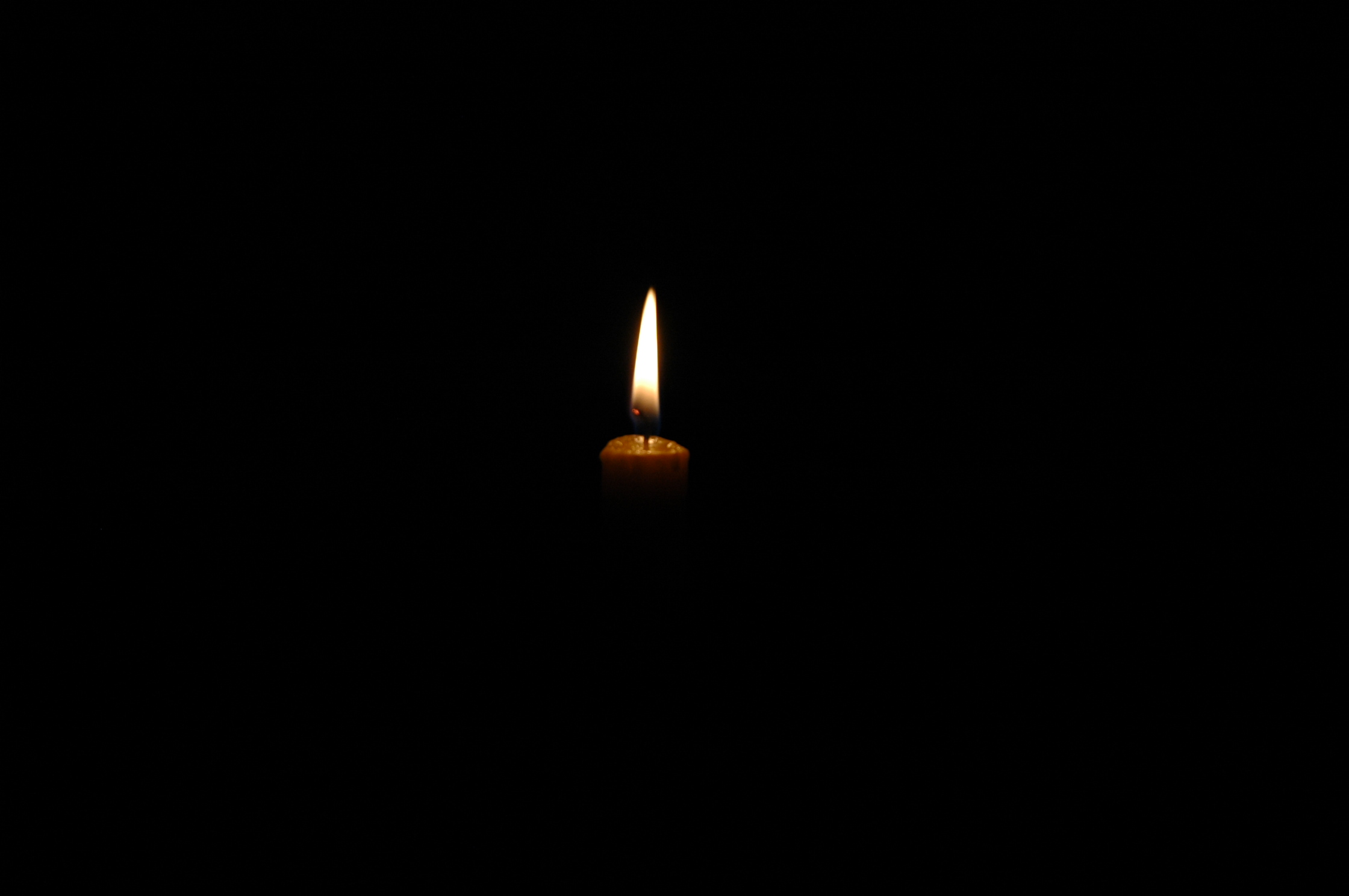A local reader wrote to declare, “our minds will be dark when we think darkly.” She went on to echo one of the most pernicious philosophies America has ever meted out to the world—“the power of positive thinking.”
 The main progenitor of the theory of positive thinking, which has become an almost unassailable prescription for the ills of society, family and the individual, was a preacher named Norman Vincent Peale.
The main progenitor of the theory of positive thinking, which has become an almost unassailable prescription for the ills of society, family and the individual, was a preacher named Norman Vincent Peale.
Born near the end of the 19th century and dying near the end of the 20th, Peale was a cleric for over 50 years in New York. He wrote the puddle-deep tract, famously (or infamously) entitled, “The Power of Positive Thinking.”
Peale is satirically mentioned as a “deep philosopher” in Tom Lehrer’s 1959 song, “It makes a fellow proud to be a soldier.” Lehrer was mining a rich vein of satire, which, in present-day America’s “support our soldiers” climate, even comedian Jon Stewart wouldn’t dare dig.
Essentially, positive thinking amounts to taking a ‘see no evil, hear no evil, speak no evil’ attitude. It converts the proverb, “as one thinks in one’s heart, so one is,” into the heartless diktat, ‘as I think in my head, so it is.’
From a phenomenological point of view, positive thinking has provided the soil for the darkest impulses in American society to grow. Before the Republican Party dug a new bottom with Trump, Carson, and Cruz, the culmination and chief exponent of this homegrown American philosophy was George W. Bush.
The Bush White House conducted an unwitting experiment to see how long mulish optimism (positive thinking), coupled with expert marketing and media complicity in the invasion of Iraq, could hold sway over reality. Now we have ISIS and a completely destabilized Middle East.
The “war of choice” in Iraq was a triumph of pigheaded belief over historical awareness. When the war predictably degenerated into a bedlam of body parts, the Bush-Cheney White House, pursuing the logical end of positive thinking, began repeating ad nauseam how progress was being made.
And why not, since one of the tenets of positive thinking is that when you believe what you want to believe strongly enough, and reiterate it often enough, your fantasy will become reality. Barack Obama has not broken with that rotten tradition.
Positive thinking does not diminish individual and collective darkness, but allows all manner of evils to increase. Indeed, positive thinking is the chief reason that North American culture became drenched in darkness.
Collective darkness can only act through a person as long as one acts out of hidden regions that one refuses to see and own. Willfully staying on the sunny side of life, and refusing to see and take responsibility for the darkness within and around one, insures that one becomes a conduit for collective darkness.
Of course, this is no longer just an American problem. The Net has become a great cover and playground for countless weak and faceless conduits. Such people don’t realize, however, that they are exposing themselves and weakening the source of their power every time they act out.
To see human nature as essentially good, as New Agers do, is merely the flip side of seeing human nature as essentially evil, as conservative Christians do.
do.
The former mindset willfully ignores darkness, and thereby allows it to grow. The latter mindset personifies darkness and projects evil outside, becoming self-fulfilling in its creation of enemies. That’s one reason why the “global war on terror” has produced many more terrorists.
Just what does this rather abstract term ‘darkness’ refer to? As I see it, darkness is the toxic byproduct of innumerable generations of non-self-knowing people, generating a growing subconscious substratum of fear, hate, and self-centered activity in individual and collective consciousness.
When people refuse to take total responsibility for the darkness within themselves, they become pipelines for collective darkness. That’s especially true in a dead culture, when a society becomes saturated with darkness.
The adage is true: “The only thing evil requires to prevail is for decent men and women to look the other way”—-though first from what is within, then from what is around one.
A saying attributed to Jesus goes: “Bring forth what is within you, and what you bring forth will save you; do not bring forth what is within you, and what you do not bring forth will destroy you.”
So what is positive and what is negative—to deny and ignore the darkness within and around one, or face it, and see and tell things as they are?
Martin LeFevre

